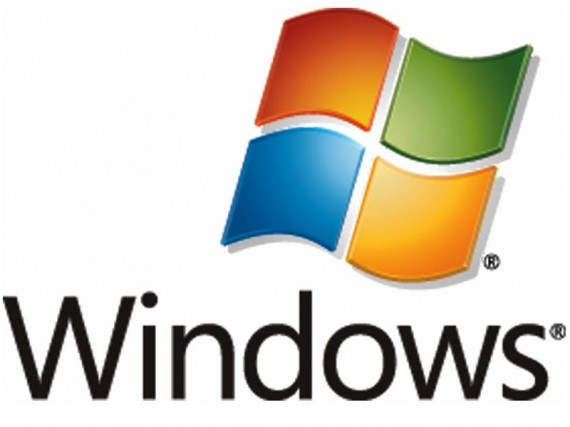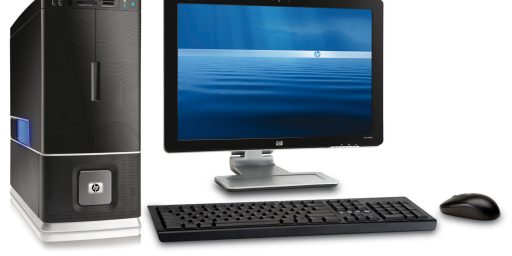Windows 8 Coming in 2012 – Does It Matter?
The next generation of the Windows operating system is about two years away. Does anyone care?
The next generation of the Windows operating system is about two years away. Does anyone care?
In its most concrete comments yet about the next version of Windows, Microsoft said in a blog post on its Dutch Web site that Windows 8 is about two years from hitting the market.
[…]
The comments, noted earlier Sunday by Winrumors.com, came at the end of a post celebrating Windows 7’s first birthday. Microsoft also posted about that milestone on its U.S. Web site this week but made no mention of the timing of Windows 8.
[…]
Indeed, Microsoft executives from Windows unit President Steven Sinofsky on down have been hesitant to say anything about the company’s future Windows plans. While the desktop team has been quiet, Microsoft’s server team did say last year that a major release of Windows Server was due in 2012 and server versions typically slightly lag a desktop release.
A presentation leaked in June suggests that the next version of Windows will include, among other things, an app store similar to ones offered by Apple and other mobile device makers. Apple announced this week that it will bring an app store to the Mac within 90 days.
The presentation also said that Microsoft wanted to improve startup times and the time it takes to resume from sleep, improve power efficiency, as well as work more closely with computer makers to better differentiate their respective computers. While these are all needed things, it’s going to be a very long two years for Microsoft if it can’t better address Apple’s moves in the tablet and notebook models before Windows 8.
Now, Microsoft has been infamous for missing target dates for dropping new OS’s, so take the date with a grain of salt.
But here’s the thing: I’m sure that Windows 8 will be an improvement over Windows 7 but can’t imagine who’s going to rush out to buy it. We’re long past the days when a new Windows meant a massive change in the user experience. Windows 3.1 to Windows 95 was a sea change. Since then, however, it’s been pretty ho hum. Windows 98 was mostly a tweak. Windows XP was a pretty noticeable improvement, although most of us just waited until we bought a new box to get it. Vista was widely panned. Windows 7 was what Vista should have been.
I’ve got Windows 7 on the computer I’m using now in my home office. It’s also on the laptop that my wife and I share. But I’ve still got XP at the office and on the computer in the basement. And, while the user experience is slightly different, I’m not overly concerned about upgrading. (Indeed, I was hesitant to move to Windows 7 on this machine because I didn’t want to have two radically different work processes; I needn’t have worried.)
For my tastes, at least, we’re at the point where a new Windows is roughly akin to a firmware upgrade on the DVR.






It certainly doesn’t matter as much as it used to. For more than ten years the computer industry had a sort of pulse, measurable in terms of Microsoft operating system releases. A new operating system (with higher minimum hardware requirements) would drive another wave of spending. That hasn’t been true for about a decade.
And in turns of total computer usage it means even less. An increasing proportion of total computer usage is use of smartphones.
I thought Win7 was a big improvement (typing that here on Ubuntu), but I agree that it is amazing the degree to which OS technology has plateaued.
Well, as a technologist I could blue-sky some better alternatives for you, but none that break the famous catch-22:
I would phrase this a bit differently. I would say that the resources required to bring a really new OS to market that is also compatible with existing software, especially given our legal climate, puts the venture beyond the acceptable risk level of any entity with the wherewithal to actually do it.
Patently untrue. We may be in the golden age of operating system software development right at this minute. More major operating systems have been developed over the last five years or so than at any time that I can recall. They’re all running on cellphones.
What is needed is not software compatibility (as Microsoft has proven again and again). What are needed are a niche and a developer base.
With Macs now up to a fifth of all new computer purchases, Microsoft does now have an economic incentive to change the game.
Hm…good point. However, I would argue that these OSs are not truly different, but rather derivative. For example, an Android app is not compatible with Java on the desktop not due to some fundamental, transformative paradigm shift in OS, but rather the fact that it will use Android-specific JAR files, APIs, etc., that are not available on desktop Java. (In fact, there is a Android emulator that is part of the SDK that will run on the desktop.)
I teach OS at the grad level and also write part of our OS Ph.D. quals twice a year. There is definitely new research resulting from the smartphone wave, but I would say most of it is incremental.
I think you guys aren’t really getting me. What I’m really giving you is a short-hand of the famous paper Systems Software Research is Irrelevant, by Rob Pike. If you know who Rob Pike is, you might slow down and think it through again.
What I’m really distilling is his talk about “novelty” an then his comment on “standards”
Now Dave, people have made new headway in new domains, but it’s important to remember that the iPhone is basically running the old NeXT computer software stack.
It is a demonstration of the strength of general UNIX-like operating systems that this approach works so well … but obviously the “novelty” of it came in the high levels of system software, and reinvention was not required.
Android is a combination of two past things, chosen primarily for their compatibility as well. It is another UNIX-ish stack, with a Java programming environment. It attracts the users of those standards, but obviously did not create any true (deep) novelty.
I’ve actually written programs for Inferno, and published a paper related to Plan 9. While interesting, I don’t see how it would have much visibility at the user level.
At any rate, this reinforces my point that it is not that it is technically infeasible to maintain compatibilty, but rather that it requires a lot of resources, and that the result is that it is too risky, with only a marginal business case.
The main two software families, Win* and *NIX have proven that they can push pixels around on a screen, while talking to an Internet. For the user to notice breakage they’d have to fail at some new demand. If for instance one or the other would have failed at video streaming, it might have changed the game.
The things that a computer scientist might be aware of, like: better component structures, better versioning, improved software longevity, improved and transparent parallelism in processing and storage (inc. distributed systems). Those have been investigated, sometimes with interesting results, but they’ve had a high hill to climb, with standards and network effects.
It’s not technically hard to have every computer you add to your household improve the overall speed of your house’s systems (and of course to automatically increase storage and redundancy for all of those systems). That was done with things like Amoeba (IIRC) in the 80’s.
So you’ve taken Rob’s point, and my point, and made it your point? Good job.
BTW, in terms of what’s “technically feasible” note that if you are trying to float a POSIX API on something like Amoeba, you’re really going to end up writing a VM.
So you’ve reached a state where the resources to support standards require writing a second emulated OS atop an OS.
Interesting thread….but to answer the question: Does anyone care?
No. 🙂
PCLOS & KDE 4.5.2.
“XP at the office and on the computer in the basement”
your basement computer and office computer are probably going to have lots of problems with security once support ends and patches stop. it would be foolosh to risk it. Does it matter? off cousre. They’ve sold nearly a quarter BILLION copies of windows 7 in a year and the market is getting larger. 90%+ of new computers have it and computers outsell smartphones sales by a huge margin.
so not only does windows 8 matters, there isn’t anything in the world of computer that matters more than windows.
Linux isn’t going anywhere, mac OS remains irrelevant and google can never displace MS in a world with trillions of apps written for the win32 system. Therefore the reason win8 is important is quite simple: nothing can touch it, approach it, come near it, stand to it.
Regardless of how you feel, and I’ll put forth that a google OS wouldn’t be any better, MS plays a very important role that will not change for decades: providing the largest most widely used platform in the world. It’s the de-facto standard, the common denominator, and their existance is needed to prevent fragmentation and splintering into dozens of incompatible systems the ways phones are today. Much like TCP/IP unified network communications and replaced the chaos of competing standards (remember novell?), windows provides the foundation upon which the world runs.
silly close minded and pointless open source politics aside, plus ignoring the old fashioned 1980’s so-last decade anti-MS bashing, windows 7 is not perfect and MS has plenty of room to grow it’s OS market and features in many intersting ways.
Besides, have YOU seen windows 8? You could argue who cares about IOS 5 even if it isn’t out because you’re plenty happy with IOS4. I’ll tell you what nobody cares for: this articles take on something its author he’s never seen, touched, used, or even knows anything about.
BTW, nobody ever rushes to buy windows, in case you haven’t noticed, nobody rushed to buy windows xp….or windows 98. Such thing only happened back with windows 95. Today people just buy windows with a new PC when they upgrade it. So the cliche line “nobody is rushing for windows” is so, 15 years ago. sorry 🙂
Since then, however, it’s been pretty ho hum. Windows 98 was mostly a tweak. Windows XP was a pretty noticeable improvement, although most of us just waited until we bought a new box to get it.
You skipped over Windows 2000, which was a very significant upgrade. The UI was close to the same with Win98, but it’s closer to 3.1-95 than any of the other upgrades due to the enhancements brought from improvements behind the curtain. Windows 2000 was the first really stable version of Windows. It was a significant enough of an improvement that people were upgrading despite some serious compatibility problems and just about everyone I know that went to 2000 never went back (I know a number of people that went back from XP to 2000 and of course Vista to XP).
That’s not to disagree with your main point. I personally plan to hold on to XP until security support stops. After that, I may upgrade to Windows 7 or I may move over to Linux. Perhaps Windows 8 will knock my socks off. I actually think that Win7 is a pretty nice improvement, just not worth sacrificing the extra speed that XP offers.
Forgot about that one — probably because I never used it. I went straight from 98 to XP.